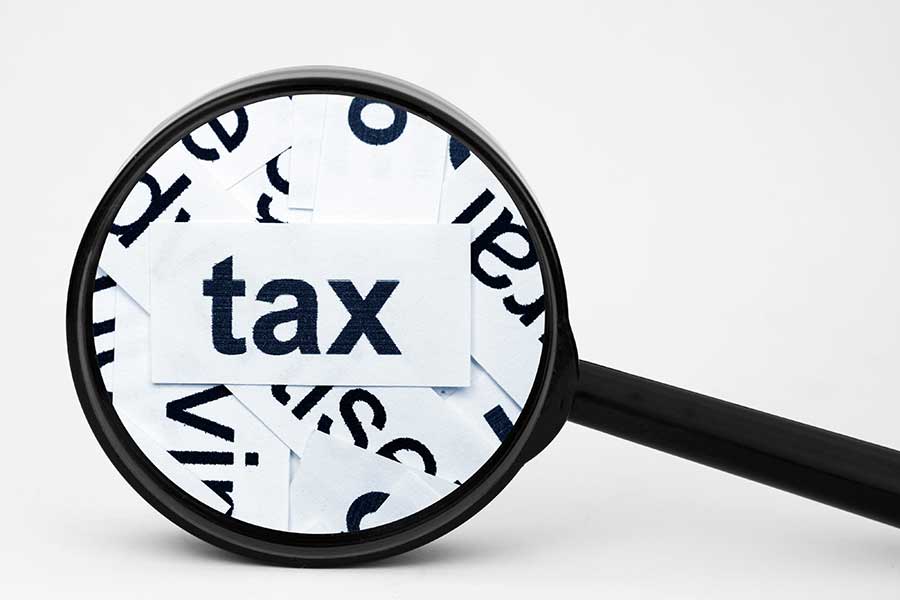Are ready for this election to finally be over? Whether you vote for Donald Trump, Hillary Clinton, a third-party candidate or even a write-in, most Americans will just be glad they don’t have to hear about it every time they turn on the TV, look at the Internet or pick up a magazine. Almost all elections, especially presidential ones, are hotly contested, but this election cycle seems to have been particularly nasty, with both candidates going after the other with unprecedented rancor. Between all the fighting and mudslinging, we’ve heard just about every negative thing we could possibly hear about both of them. One of the hottest issues has been taxes; and not just Trump’s tax returns, but also each candidate’s tax plan.
What You Don’t Know Could Hurt You
While much of what is said between the two candidates is for political posturing, what they say about taxes really matters. Of course, it’s a well-known fact that political candidates make a lot of promises during any election, many of which are never fulfilled. In addition, just because a candidate takes one position during the election, that doesn’t mean he or she can’t change course and go a different route after the election is over. However, that being said, both of the candidates’ stated tax plans could very likely bring some major changes to the current tax system and most taxpayers would likely be affected. Therefore, it’s important to know what the candidates’ actual plans are and to understand how each of these plans would really affect you.
The Plans
There are several key factors in each plan, so lets take a closer look at what both of them have to offer and how they might affect you. For more information on each Candidates plan you can visit Taxfoundtion.org. For Trump’s tax plan click here and for Clinton’s tax plan click here.
Clinton’s Plan
Clinton’s plan essentially follows the typical Democratic Party beliefs: raising taxes on wealthy earners and large corporations while lowering them on the middle- and lower-class. However, for the most part, Clinton’s proposals would essentially maintain the status quo for 95 percent of American taxpayers, as she looks to keep the tax code basically the same except for the nation’s wealthiest individuals. Clinton wants to close the many tax loopholes that businesses and the wealthy use to lower their effective tax rate. She also prefers to raise the current estate tax rate and increase the percentage they pay as the value of the estate increases. For example, those with estates of $500 million or more would pay 65 percent. Clinton wants to enact the so-called “Buffet Rule,” which would mandate that all wealthy Americans would pay an effective tax rate of no less than 30 percent.
Clinton also wants to enact a “Fair Tax Surcharge” for all earners that make more than $5 million a year. This is because many wealthy individuals are able to reduce their effective tax rate by structuring their income and investments to reduce their tax bills. She also wants to reduce how much taxpayers can put away into their retirement accounts, and she wants investors to hold onto their stocks longer in order to qualify for the lower capital gains tax rate. Clinton has also promised to make it more difficult, if not impossible, for companies to do inversions, which would prevent them from moving assets overseas. The bottom line, look for Clinton’s plan to raise taxes on the wealthy and big corporations, which would cost these taxpayers about $1.1 trillion over the coming decade.
Trump’s Plan
Not surprisingly, Trump’s plan appears to favor the wealthy and big corporations, however, he has also made several proposals that are designed to help the lower- and middle-class. First off, Trump wants to reduce the number income brackets to just three, with individual filers making less than $37,500 and joint filers less than $75,000 paying 12 percent. Individuals making $37,500 to $112,500 and joint filers making $75,000 to $225,000 would pay 25 percent and any individual making more than $112,500 or joint filers making more than $225,000 would pay 33 percent.
Trump would also raise the standard deduction amounts to $15,000 for single filers and $30,000 for joint filers. He would cap the standard deduction amounts at $100,000 for single filers and $200,000 for joint filers. Trump also wants to repeal the additional 3.8 percent investment tax that is part of the Affordable Care Act. He has also proposed completely eliminating the estate tax so individuals can hand down their money after they die without any tax penalty. He wants to allow parents to deduct the full amount they pay in childcare and he wants to increase the Earned Income Credit cap amounts to $62,400 for couples with children and to $31,200 for single parents. Lastly, corporations would also benefit, as Trump wants to reduce the corporate tax rate from 35 percent to 15 percent.
Are You Ready to Vote?
Of course, there are many issues to consider when voting, with taxes being just one of them. However, if taxes are one of the main issues that matter to you, then you can use this information as a guide to help you decide. In any case, no matter whom you vote for and no matter who wins, your tax situation could be changing next year. So before you fill out your ballot be sure you understand which candidate has your best financial interest in mind.



Leave a Reply
You must be logged in to post a comment.